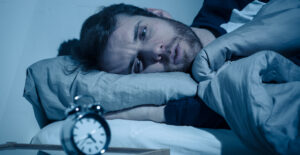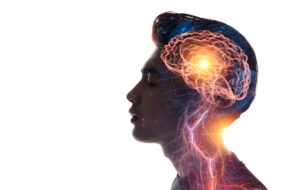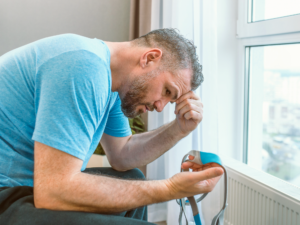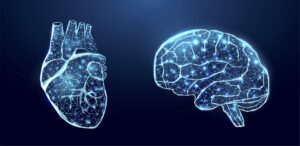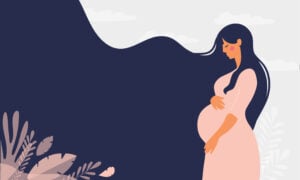Our Brains Can Age as Much as Two Years With No Sleep for 24 Hours

An all-nighter may sound like a rite of passage for young adults, but a recent study suggests that skipping a night of sleep doesn’t just leave you feeling tired – it may also speed up the aging process in your brain.
Researchers at the University of Zurich analyzed the MRI scans of 134 young adults with an average age of about 25 years to understand how the brain responds to sleep loss. To do this, they measured changes in the brain after different lengths of time without sleep. They fed this data into a tool that uses machine learning to estimate the brain’s age. The results showed that a single night without sleep causes the brain to appear one to two years older than a person’s actual age.
The findings of this study add to experts’ understanding of the detrimental effects of sleep loss on the brain. Research has consistently shown that losing sleep is linked to a long list of negative health consequences, including impaired brain function, lower quality of life, and an increased risk of chronic illness. This study shows that changes resulting from sleep loss also translate to temporary age-related changes in the brain.

The study also found that changes in the brain’s estimated age were reversed after a full night’s sleep. Nevertheless, premature signs of aging in the brain may still be a cause for concern. The brain undergoes a wide range of changes as people age, affecting learning, memory, and the ability to perform complex tasks. Early signs of aging in the brain could hint at an increased risk of cognitive problems later in life.
Experts believe that one of the reasons we sleep is to give the brain crucial time to heal and refresh. Researchers in this study propose that sleep loss may age the brain by disrupting the flow of cerebrospinal fluid, which helps cleanse the brain of toxins. Additionally, sleeplessness reduces the brain’s ability to reorganize and form new connections between brain cells.
Got a hot tip? Pitch us your story idea, share your expertise with SleepFoundation.org, or let us know about your sleep experiences right here.
Sleep loss in the United States is widespread, with around a third of people reporting not getting enough nightly rest. This study’s findings add to experts’ understanding of the cognitive effects of sleep loss but also offer hope – that many effects of sleep loss can be mitigated by improving sleep habits and getting the recommended hours of sleep each night.
References
5 Sources
-
Chu, C., Holst, S. C., Elmenhorst, E. M., Foerges, A. L., Li, C., Lange, D., Hennecke, E., Baur, D. M., Beer, S., Hoffstaedter, F., Knudsen, G. M., Aeschbach, D., Bauer, A., Landolt, H. P., & Elmenhorst, D. (2023). Total sleep deprivation increases brain age prediction reversibly in multisite samples of young healthy adults. The Journal of Neuroscience, 43(12), 2168–2177.
https://pubmed.ncbi.nlm.nih.gov/36804738/ -
National Heart, Lung, and Blood Institute. (2022, March 24). What are sleep deprivation and deficiency?, Retrieved on August 10, 2023, from
https://www.nhlbi.nih.gov/health/sleep-deprivation -
National Institute on Aging. (2023, June 23). How the aging brain affects thinking., Retrieved on August 10, 2023, from
https://www.nia.nih.gov/health/how-aging-brain-affects-thinking -
Franke, K., & Gaser, C. (2019). Ten Years of BrainAGE as a Neuroimaging Biomarker of Brain Aging: What Insights Have We Gained?. Frontiers in neurology, 10, 789.
https://pubmed.ncbi.nlm.nih.gov/31474922/ -
National Heart, Lung, and Blood Institute. (2022, June 15). How sleep affects your health., Retrieved on August 10, 2023, from
https://www.nhlbi.nih.gov/health/sleep-deprivation



















